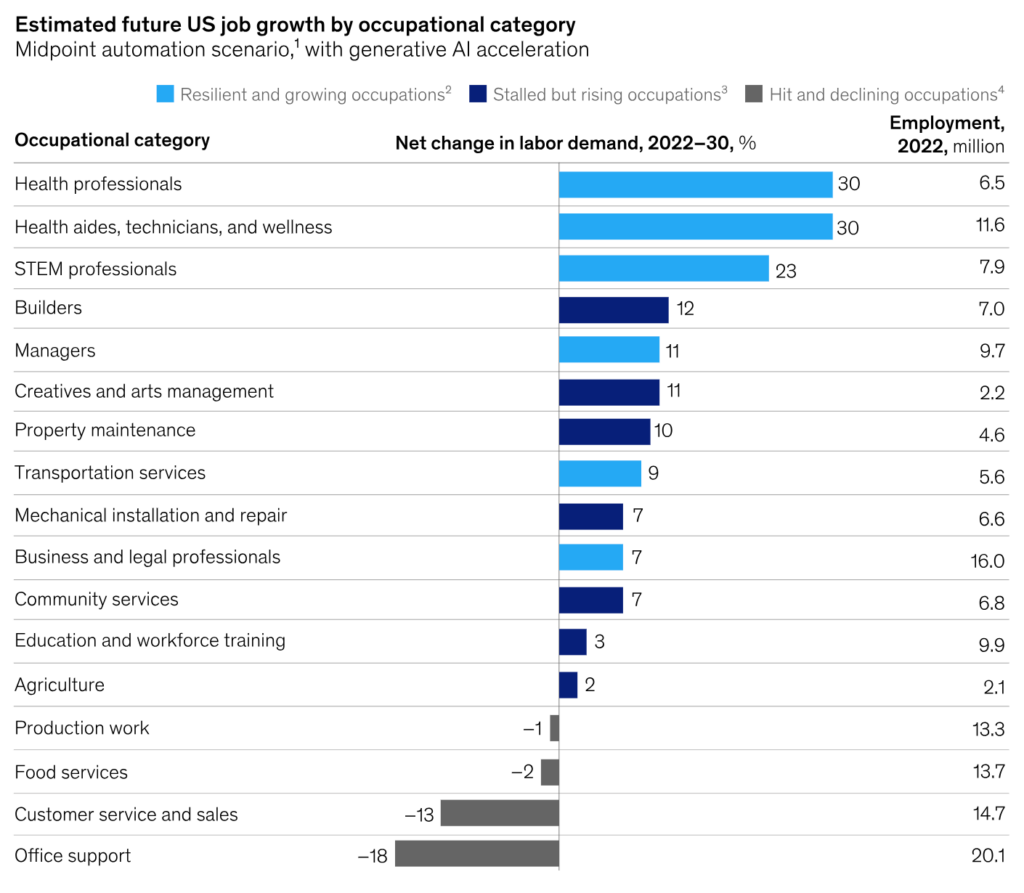McKinsey released its latest report on how generative AI is expected to affect the US labor market and it doesn’t bode well for low-wage service jobs.
The report titled, “Generative AI and the future of work in America”, said that jobs in office support, customer service, sales, and food services would continue to decline as AI tools automated these roles. Workers earning around $38k per annum are 14 times more likely to see their jobs taken over by AI.
While jobs on the low end of the pay spectrum are at high risk, some higher-end jobs aren’t spared either. To offer a sense of the scale of the anticipated job shift the report said that up to 30% of the hours currently worked by US workers would be automated by 2030.
That equates to around 12 million people that will need to change their careers in the next 7 years.
A Pew Research report showed that higher-wage jobs like tax practitioners, web developers, and budget analysts also have a high degree of exposure to AI automation. If you’re a barber, firefighter, or child carer, then it’s highly unlikely that AI will have you looking to make a career change anytime soon.
McKinsey researchers have highlighted how AI is expected to change the jobs landscape before but admit that they underestimated the scale and pace at which it would happen.
The report noted that “The changes estimated in our earlier research are happening even faster and on an even bigger scale than expected.”

If you think back to what happened to jobs during the 2019-2022 period due to Covid then you get a sense of the disruption we’re talking about. During that time as travel, restaurants, and other industries were shut down, around 8.6 million occupation shifts took place.
But as the pandemic came to an end a lot of people were able to go back to their old jobs as things opened up again. The jobs that AI replaces won’t be coming back.
The report points to some positive aspects of this shift too. If up to 30% of activities in STEM jobs can be done by AI, imagine what those scientists and engineers can achieve with more time on their hands.
Nurses that don’t need to input data into a computer can spend more time with their patients.
The other good news from the report is that it seems to point to a net gain in labor requirements, albeit with a lot of jobs lost in the office and support services industries.
If you spend a lot of your working hours in an office looking at a computer screen then you may need to think about learning some new skills fast. The report predicts a 23% increase in STEM jobs but embracing AI tools to boost productivity will be an important part of the skillsets for these jobs.





